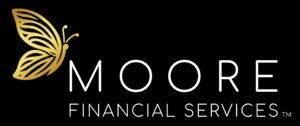
A successful public speaker will absorb their audience because he or she will have something meaningful to say. Getting up and talking confidently without anything to say is just as bad as not being able to say anything at all. So the second skill to learn is how to prepare a speech or talk. • Identifying a topic – or deciding what to talk about. • Deciding exactly what information you will give or ideas you will discuss within that topic. • If you have a thorough knowledge of the topic you will then create an outline for the topic and choose a way to introduce it and a way to end the talk. • If you don’t have a thorough knowledge of the topic, you will first need to research it so you have something to talk about and will be able to answer questions related to your talk if asked. You need to know more about the topic than you cover in your talk. Then you will need to tackle other public speaking skills that will enable you to deliver the speech you have prepared. These range from the way you stand, how you breathe, your body language and the way that you communicate with your audience.
Whose reputation is at stake if something goes wrong? As obvious as it seems, most people take for granted that the logistics will take care of themselves. There is nothing more embarrassing than a late start. Get to the room where you are speaking early so you can familiarize yourself with the environment. Walk on the stage so it is not your first time. Test the mike. Remember you will warm up your audience faster if you seem composed rather than appearing haphazard. You probably have a standard presentation that you could use on numerous occasions and it is really good, but do not forget to customize it to your audience. Why? Because what the audience wants to hear is more important than what you have to say. Find out ahead of time the group’s needs. You are more likely to engage your audience if you talk about things that are part of their lives. It is also the quickest way to bond with your audience. Timing is everything! There is nothing worse than the audience leaving in the middle of a speech. It distracts everybody and takes away from your message. Professional Speakers know that ending on time is the key to being invited again. Have you noticed how Professional Speakers open their speech? It is usually a personal story, statistics, a question or humorous illustration. There is a reason for that. It takes even the best speakers a few minutes to get comfortable with their audience. Avoid taking risks in the first 8 minutes of your speech at the risk of a bad speech. I hope you never run into these 7 pitfalls in your quest to become a great speaker.
Next, draft out the outline of your speech in point form. You don’t have to write out the complete speech word for word. Just use the points as guide to prompt you as you deliver your talk. 2. Know The Audience. You got to know your audience well enough, so you can capture their attention and satisfy their expectations. Get to know their profiles like their age group, race, education level, gender, their command of language, etc. The more you know about your audience, the better and easier for you to convince or connect with them. Just like any stage performance, the most important thing is rehearsal. Find time to practice your presentation as many times as possible. Rehearse it aloud in your room, just like you are actually presenting it on the day. Make sure the point are well organize. It is also a time to check the coherence of the materials and the length of your speech. Make sure it doesn’t overrun the time provided. Rehearse together with the visual aids. 4. Overcome Fear Of Speaking. Yes, for your information, some professional speakers do have phobia of public speaking. The only difference is they have more experience speaking before an audience, compared to you. But if you are mastered all the tips as mentioned above, you can be a confidence public speaker too. One of the crucial speaking tips, is make sure you work on the opening of your speech. The introduction of your talk is your first impression to the audience. In addition, if you start off reasonably well, it can puff up your confidence; and you forget about the fear of speaking before an audience. You may even start to enjoy it. So, remember these four key public speaking tips. Master them and you are on your way to be a persuasive public speaker.
I do not know of anyone who is confident all the time, but rest assured that as you begin to eliminate your anti-confidence mechanisms, you will experience confidence while speaking more and more. Definitively I can say that as you eliminate/remove the blocks like insecurities etc, you will experience the state of confidence on the stage more frequently. How much more simplistic does this make the problem of becoming a confident public speaker? From this new perspective, you have quantifiable tasks to complete. If you become aware of a specific insecurity, then you know how to become more confident – eliminate the insecurity. This article is not about eliminating insecurities etc – find these on my site linked to in the resource box. I advise that you take this notion of confidence not just into your public speaking efforts, but into all areas of your life, because it will provide you with specific actions that you can take to become more confident in any area. Visit my resource page to start overcoming your fear of public speaking!
